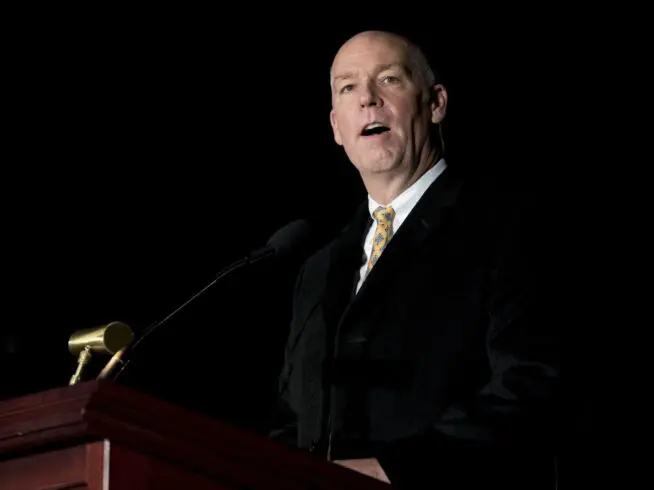Montana court tosses out law defining ‘exactly two sexes’
The law had been used to justify policies prohibiting changes to sex designations on official documents.

A Montana judge on July 25 ruled that a state law that mandates the classification of a person’s sex as either male or female and based solely on “the organization of the body parts and gametes for reproduction,” is unconstitutional.
The law, introduced as Senate Bill 458 with the title “An act generally revising the laws to provide a common definition for the word sex when referring to a human” and signed by Gov. Greg Gianforte, took effect in May 2023. It says: “In human beings, there are exactly two sexes, male and female,” and goes on to define those two sexes narrowly based on physical characteristics, irrespective of gender identity.
The American Civil Liberties Union of Montana and the law firm Holland & Hart LLP sued the state in December over the law on behalf of five Montana residents, claiming it violated multiple provisions of the Montana Constitution.
The court sided with the plaintiffs, ruling, “SB 458 violates Mont. Const. art. V, § 11(3) for failing to clearly state the subject of the Bill in its title.”
According to the ruling of the Montana 4th Judicial District Court, written by Judge Shane Vannatta and shared by the Daily Montanan, the title of the bill “is of such a character as to mislead the public. The title does not distinguish which word ‘sex’ is intended and the title does not include the additional subjects of the body of the bill the definition of ‘female’ and ‘male.’”
The ACLU of Montana celebrated the ruling in a press release.
“Today’s ruling is yet another repudiation of the State’s various attempts to target Two-Spirit, transgender, intersex, and nonbinary Montanans,” said Alex Rate, the organization’s legal director. “In this instance, the legislature clearly intended to deceive the public about its real purposes when it adopted a misleading title for SB 458.”
Shawn Reagor, a transgender resident of Lewis and Clark County and a plaintiff in the case, said the law was “mean-spirited and unconstitutional” from the outset.
“Its purpose was not to define sex but rather to eliminate the existence of transgender, nonbinary, and Two-Spirit Montanans,” Reagor said in the ACLU press release. “Gender diversity has existed here long before Montana was even a state or territory, through the many diverse and vibrant Indigenous cultures and Two-Spirit people that inhabit this land. We (transgender Montanans) cannot simply be defined out of existence. Just like any other Montanan, we want the government to stay out of our lives so we can continue to have the joy of being able to live our lives authentically.”
The ruling will stop enforcement of the law for now, though an appeal by the state may put the case before the Montana Supreme Court, the ACLU said.
“I’m thankful that ignorance and erasure of intersex Montanans will no longer have to be accepted as law,” a Jane Doe plaintiff in the case said in the ACLU press release. “Polarizing politics are no excuse for sloppy policy that denies my existence and the existence of my fellow plaintiffs.”
S.B. 458 has been used as the legal justification of state policies that restrict changes to sex designations on official documents. The Montana Department of Health and Human Services pointed to the law when it announced in February that it was reinstating a policy banning amendments to sex designations on birth certificates.
That policy, originally put into effect in 2022, had been blocked in June 2023 when Yellowstone County District Court Judge Michael Moses held the state in contempt for ignoring an earlier ruling, the Daily Montanan reported at the time.
When the health department announced in February it was reinstating the restriction Moses had struck down, it claimed the new law required it to do so.
“DPHHS must follow the law, and our agency will consequently process requests to amend sex markers on birth certificates under our 2022 final rule,” department director Charles Brereton said in his agency’s announcement.
The department policy is the subject of a class action lawsuit filed against the state by the ACLU of Montana.



